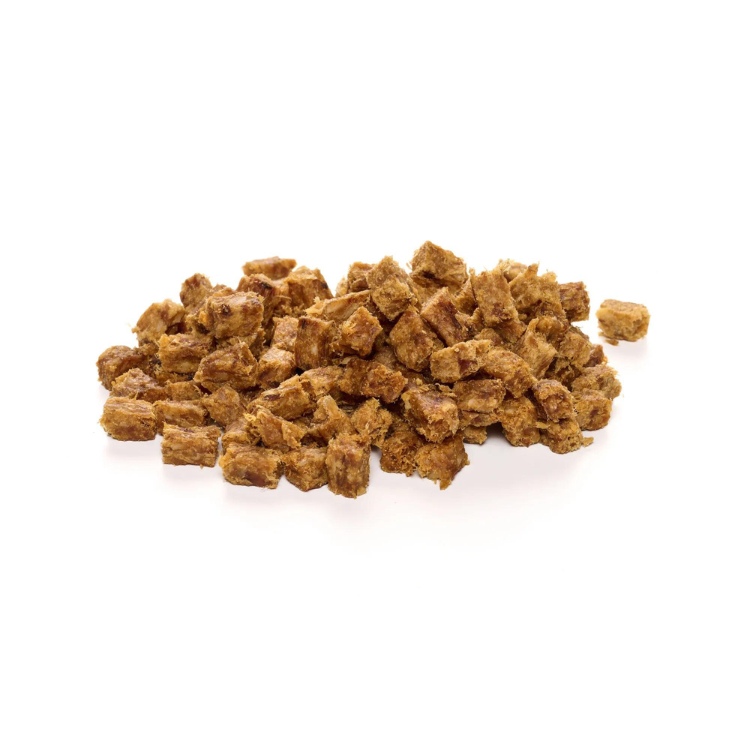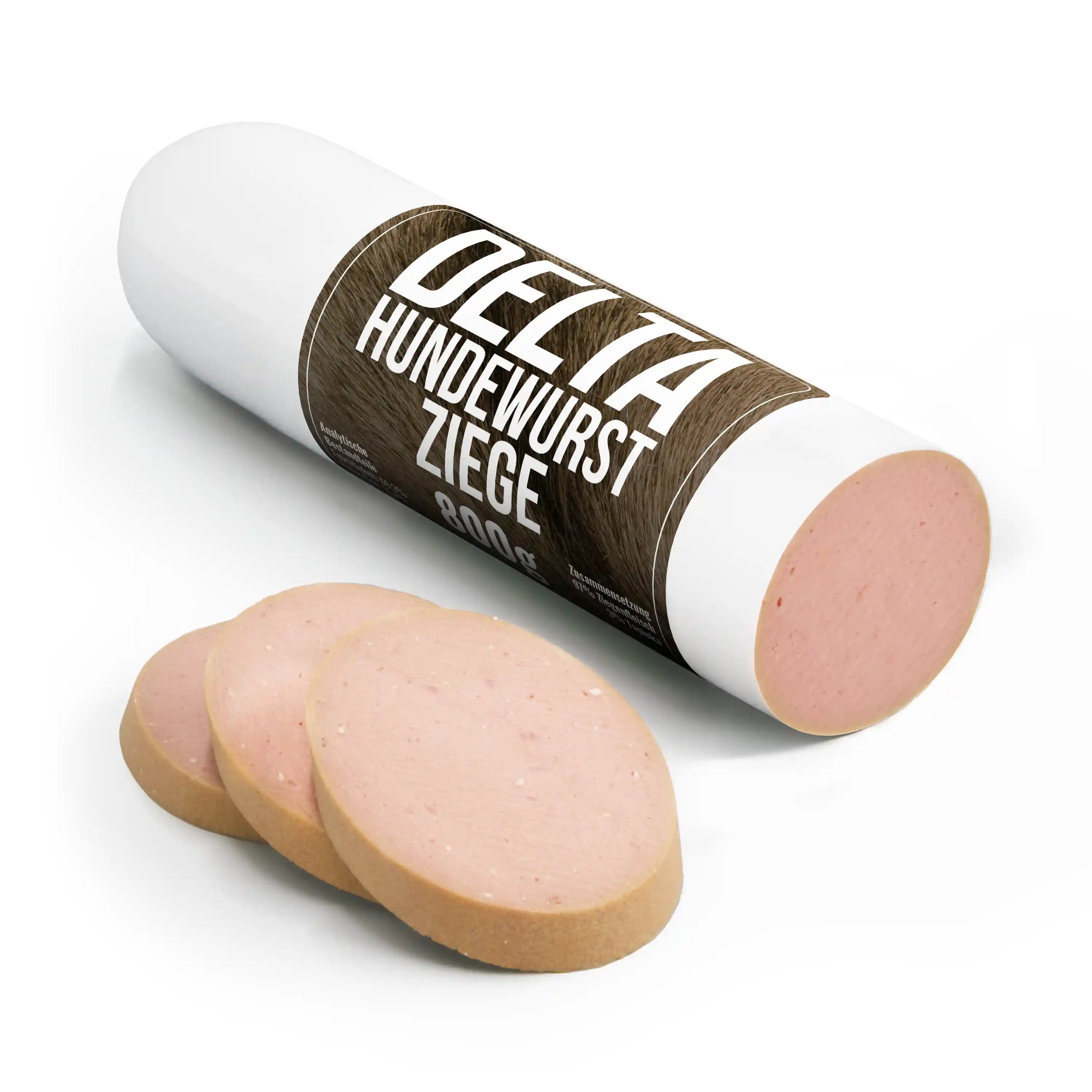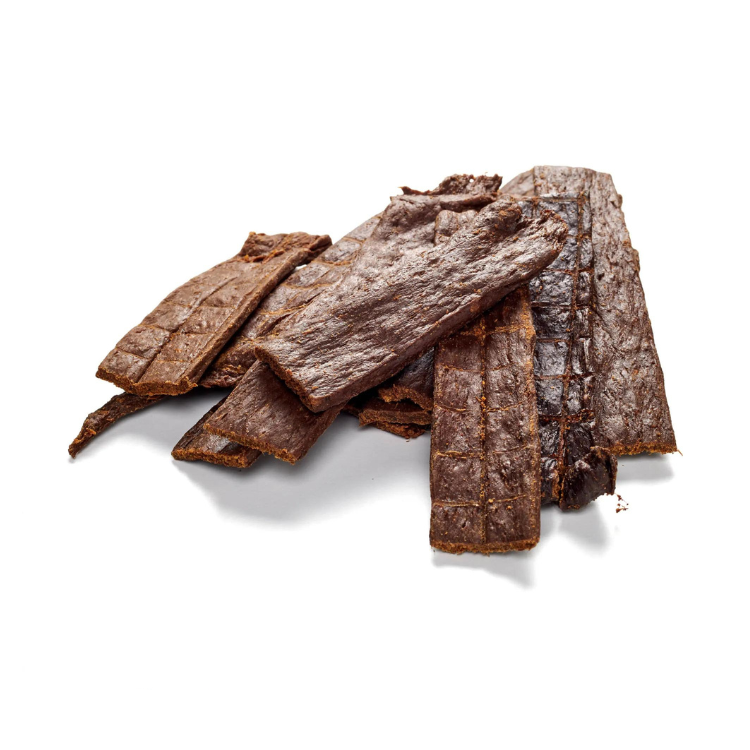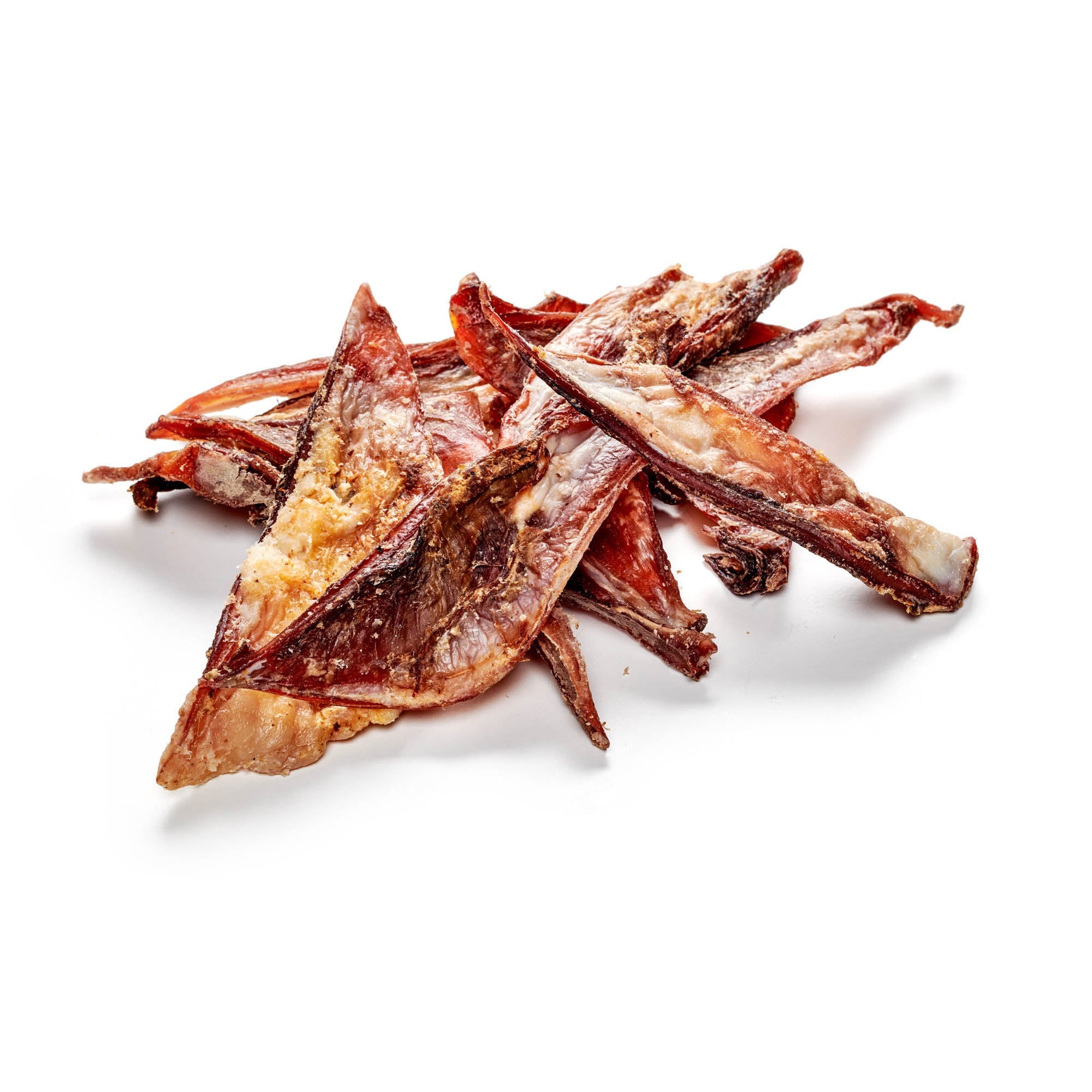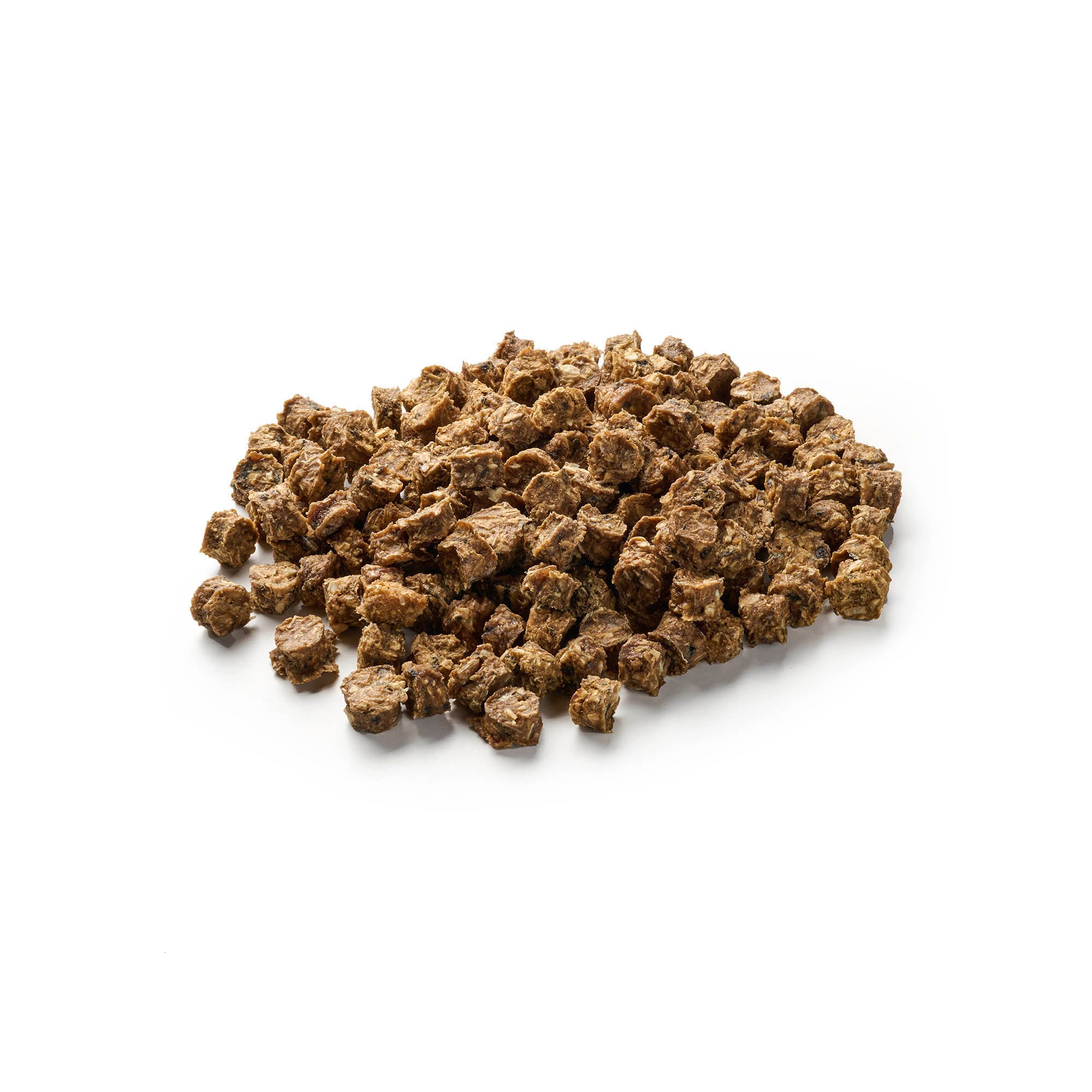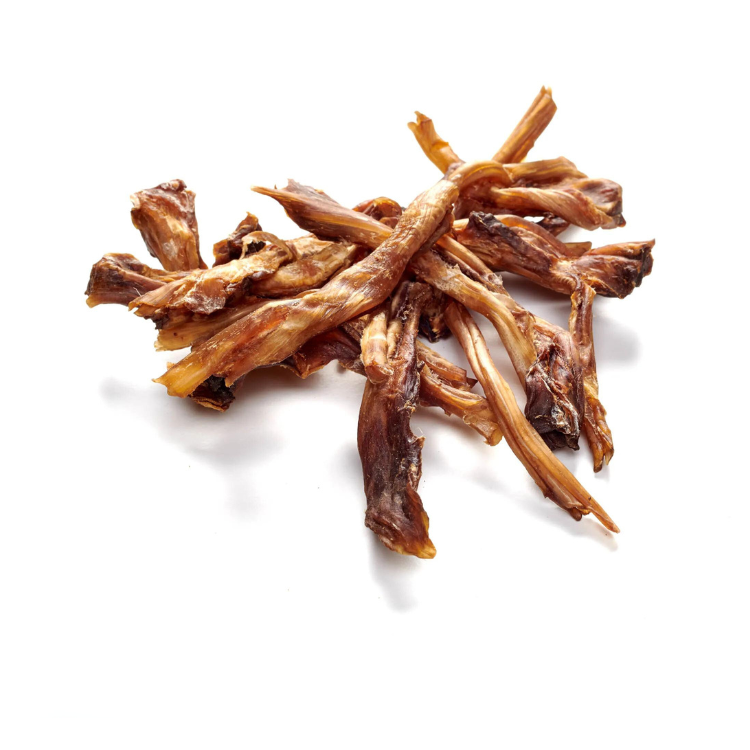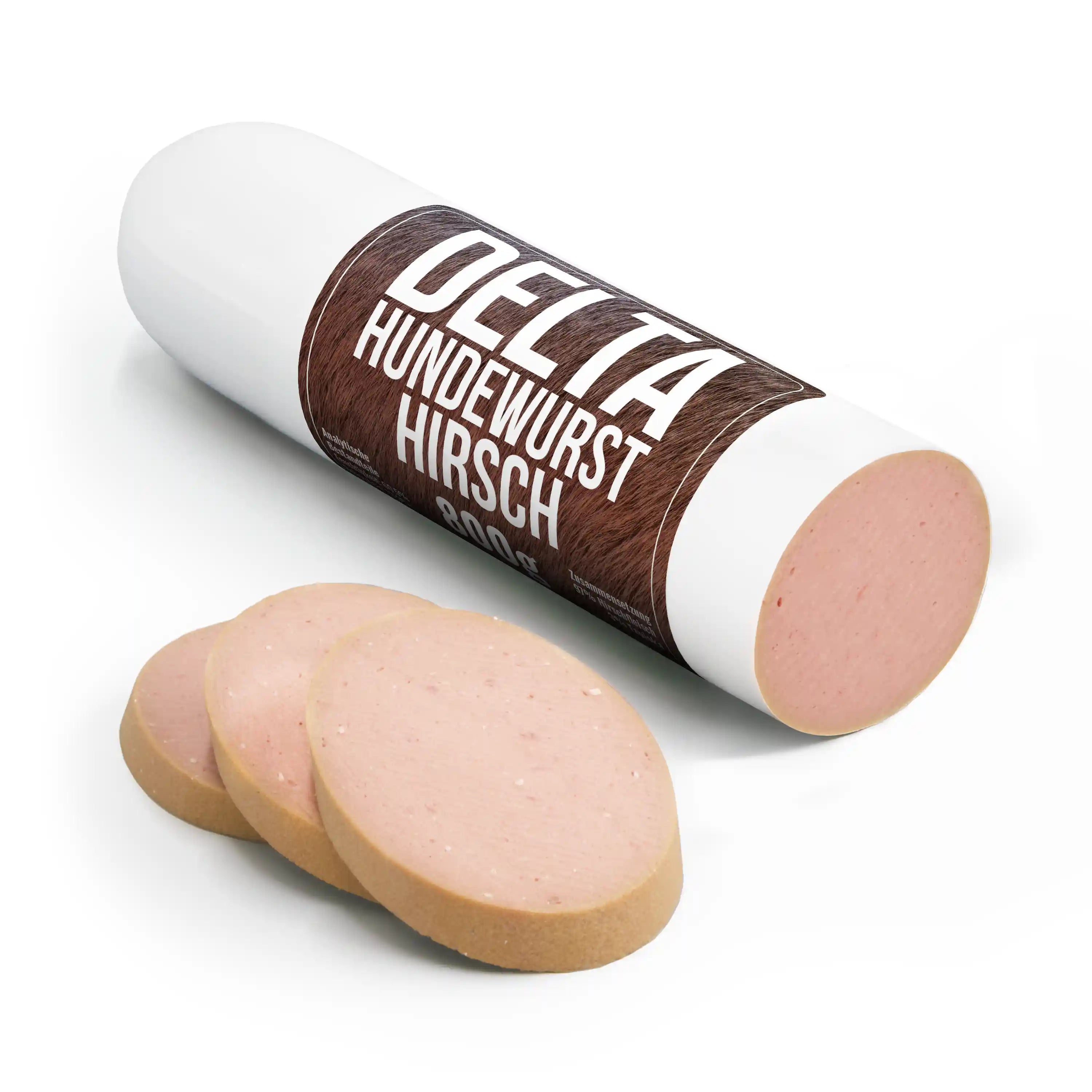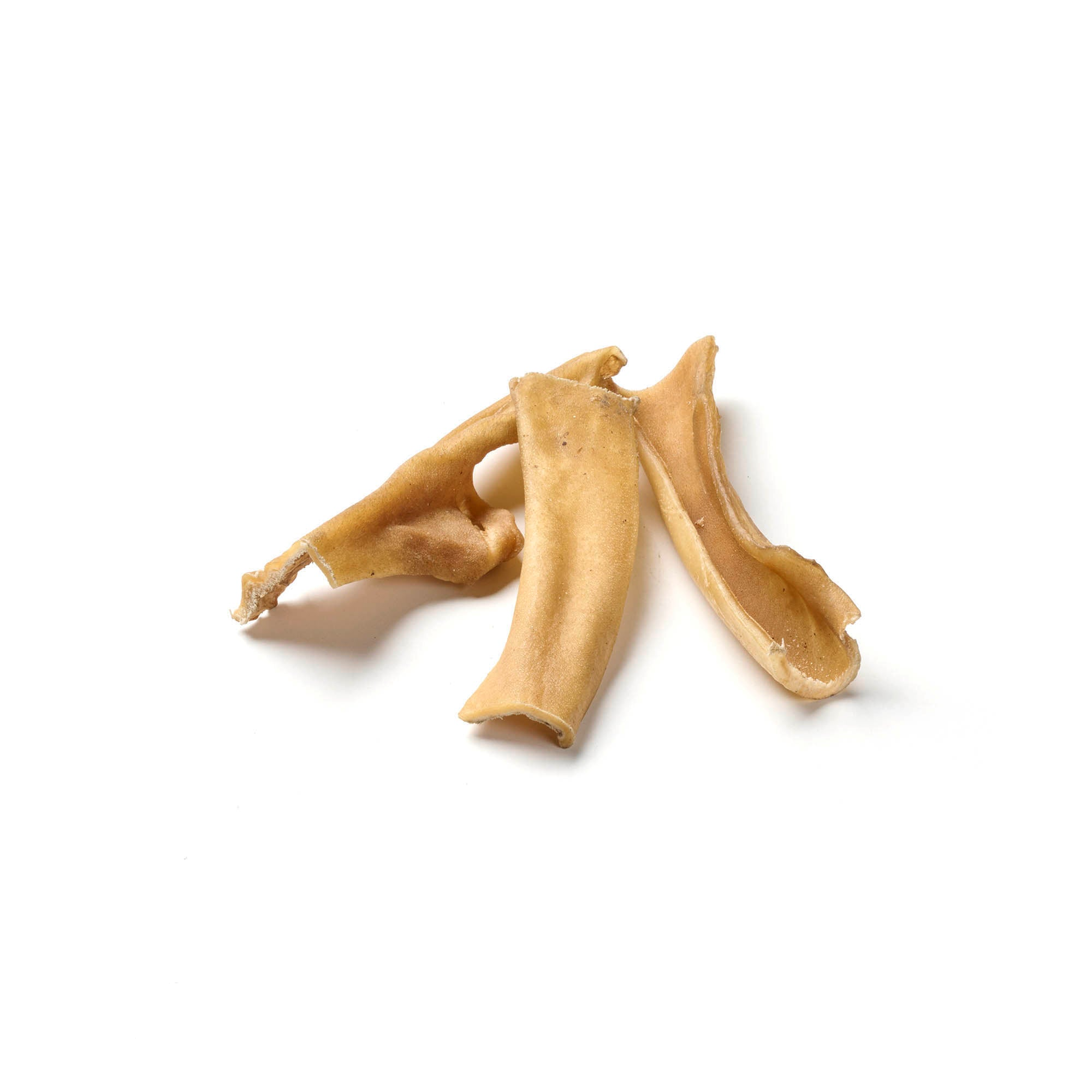
Golden retriever
Share
Everyone knows the Golden Retriever because it is one of the most popular dog breeds in the world. With its lovable character, high intelligence and obedience, it is the perfect family dog. Golden Retrievers are working dogs, but are not suitable as guard dogs because they rarely become aggressive. As former hunting dogs, they need a lot of exercise and movement.
Content: Golden Retriever
Spoil your four-legged friend with our delicate chew items!
Golden Retriever - Profile
- Character: Confident, intelligent, trustworthy
- Size: Large
- Height: 51-61 cm
- Weight: 30-40 kg
- Life expectancy: 10-12 years
- Coat type: Long hair
- Colour: Golden brown to cream
- FCI Group: Retrievers, Flushing Dogs, Water Dogs
Golden Retriever - Special Characteristics
The British dog breed is recognized by the FCI and the breed standards are set accordingly. With up to 61 cm at the withers for males and 56 cm for females, it is a medium-sized dog. Its long, mostly golden brown to cream-colored hair conceals its powerful stature. With its thick undercoat, it is completely weatherproof. The tail and muzzle are long and with its medium-sized floppy ears it wins almost every heart. The Golden Retriever loves to swim and generally has no problems with water , as it was bred for retrieving when duck hunting. This means that the child-loving dog also has a great need for exercise, which is particularly effective in a family.
With his personality traits, he is very focused on his people and is ideally suited to being trained as a guide dog for the disabled. Even the police value his ability to detect explosives or drugs.
Golden Retriever - What should you consider when feeding them?
As always, the right diet for your four-legged friend is a very individual matter. Various factors must be taken into account, because not every dog is the same. Puppies or young dogs need different food than adult dogs and seniors. Weight also plays a role, as does the dog's exercise. The Golden Retriever gets by well with around 1400 calories per day and an average weight of 35 kg.
>Puppies in particular need special dog food for puppies, because the wrong diet can lead to joint and bone problems in old age.
With the right choice of food, the dog's teeth can also be cared for and cleaned. Dry food or chews are ideal here, as the solid croquettes ensure natural abrasion on the teeth. The dog food of choice should have a high meat content, contain little to no grain and be supplemented with fruit, vegetables and herbs. Many types of dog food are enriched with sugar such as fructose, which usually does not indicate the best quality.
Delicious chews for your faithful companion now available!
Golden Retriever - Health and Care
As with many purebred dogs, hereditary diseases are a big issue with Golden Retrievers. The widespread elbow dysplasia and hip dysplasia are the problems that cause problems for this breed of dog - making it all the more important that precautions are taken in the diet. Epilepsy is also more common in this breed than average. If it stays healthy, the Golden Retriever has a life expectancy of 10 - 12 years.
With its long and thick fur, it is one of the dogs that requires a lot of care. Every few days should be enough, but when it is shedding you should use a brush and comb every day to get rid of the dog hair. With the right coat care you not only ensure that your dog looks good, but also prevent the hair from matting and remove loose hair from the fur - which would otherwise be scattered around the house. Complete dog care also includes the ears, eyes, paws and claws. There are care products for dogs for this, for example paw balm for the cold season or ear cleaning sets with finger cots.
You should have a vet show you how to use nail clippers properly, as this can cause painful injuries. A bath with special dog shampoo every now and then not only cleans the fur after playing in the dirt, but also cleans the dog's genitals.
Golden Retrievers - Video
Golden Retriever - Origin & History
Seldom is the origin of a dog breed as clearly traceable as that of the Golden Retriever. From documents of Lord Tweedmouth (1820-1894) from Scotland, it is known that the ancestors of the Golden Retriever came from Newfoundland. The fishermen there used the native St. John's dog to pull their boats ashore and retrieve fish. British traders liked these dogs, which were related to the Newfoundland , so much that they imported them to Great Britain. There they were bred with the Irish Red Setter and the so-called Wavy Coated Retrievers with various coat colors were created. It was Lord Tweedmouth who particularly liked one of these retrievers. This male, named Nous, is now considered the progenitor of this dog breed.
Golden Retriever - The right accessories
The basic equipment for dog owners can be quite extensive. A sturdy collar or harness, leash, food and water bowl, dog bed and possibly a transport box for the car are the most important things. Then there are care products for fur, paws or anti-tick products such as spot-ons or anti-tick collars. But the topic of ticks in dogs is a different matter. The Golden Retriever has a strong instinct to play, so dog toys are also part of the equipment. A simple rope or a ball can be enough to keep him busy. Since they were bred to retrieve ducks, retrieving bones for dogs are a good option - treats can be offered as a reward and a dog whistle gives your commands more weight. For regular transport in the car, we recommend a dog transport box or a partition grille to the trunk. If you are planning to buy a puppy, you can find out everything about the perfect initial puppy equipment here!
Conclusion
The Golden Retriever, popular for its lovable nature and intelligence, is an ideal family dog. Its origins in Scotland as a working dog for duck hunting characterize its adaptability and love of movement. High-maintenance but robust, it requires loving care and suitable accessories for a fulfilling dog life.
Discover delicious dog snacks directly from our range!

